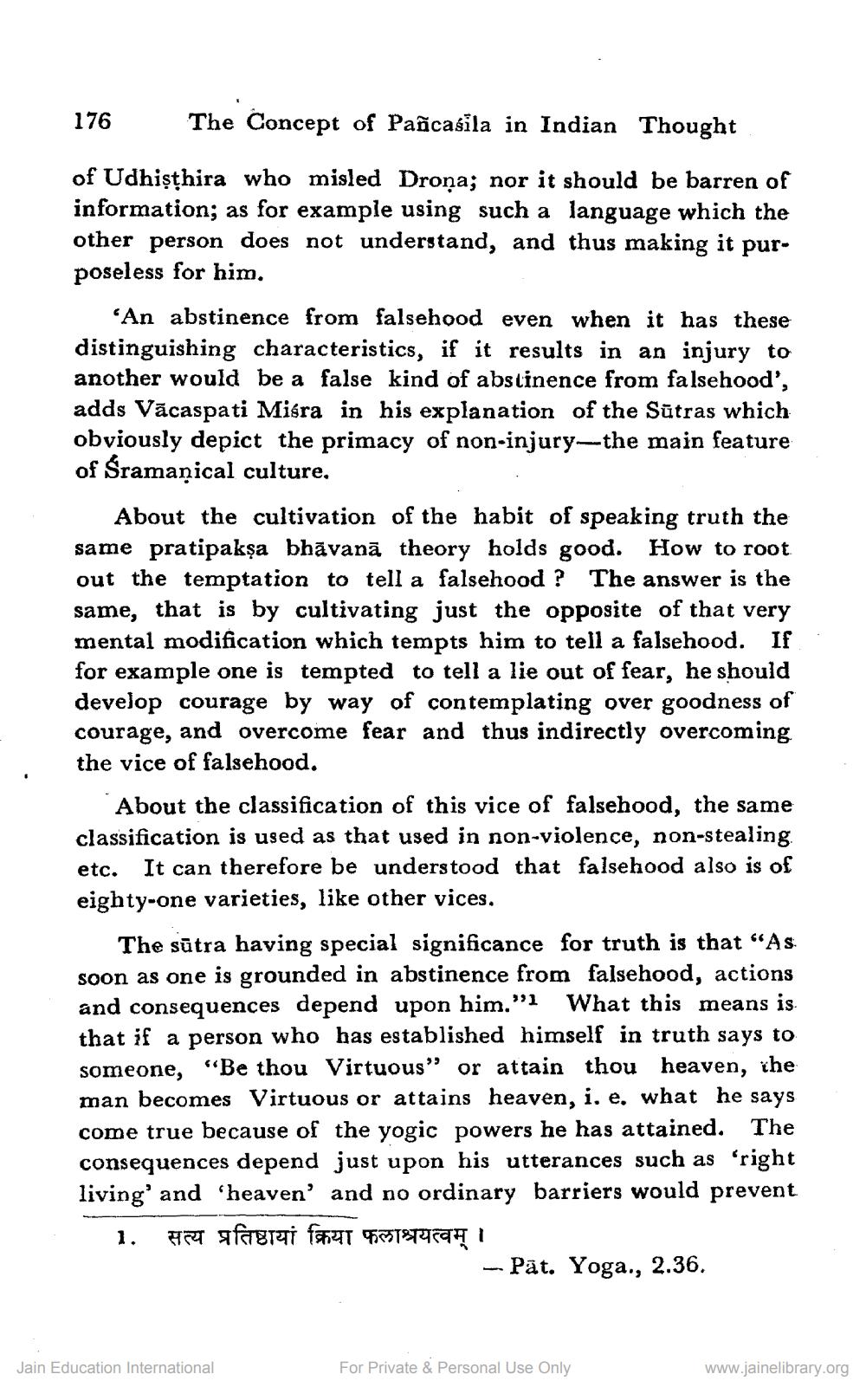________________
176
The Concept of Pancasila in Indian Thought
of Udhisthira who misled Droņa; nor it should be barren of information; as for example using such a language which the other person does not understand, and thus making it purposeless for him.
'An abstinence from falsehood even when it has these distinguishing characteristics, if it results in an injury to another would be a false kind of abstinence from falsehood', adds Vācaspati Misra in his explanation of the Sūtras which obviously depict the primacy of non-injury--the main feature of Śramanical culture,
About the cultivation of the habit of speaking truth the same pratipakşa bhāvanā theory holds good. How to root out the temptation to tell a falsehood ? The answer is the same, that is by cultivating just the opposite of that very mental modification which tempts him to tell a falsehood. If for example one is tempted to tell a lie out of fear, he should develop courage by way of contemplating over goodness of courage, and overcome fear and thus indirectly overcoming the vice of falsehood.
About the classification of this vice of falsehood, the same classification is used as that used in non-violence, non-stealing. etc. It can therefore be understood that falsehood also is of eighty-one varieties, like other vices.
The sūtra having special significance for truth is that “As soon as one is grounded in abstinence from falsehood, actions and consequences depend upon him." What this means is. that if a person who has established himself in truth says to someone, “Be thou Virtuous" or attain thou heaven, che man becomes Virtuous or attains heaven, i. e. what he says come true because of the yogic powers he has attained. The consequences depend just upon his utterances such as 'right living' and 'heaven' and no ordinary barriers would prevent 1. gfBtai (EAT 557779ca
- Pāt. Yoga., 2.36.
Jain Education International
For Private & Personal Use Only
www.jainelibrary.org




